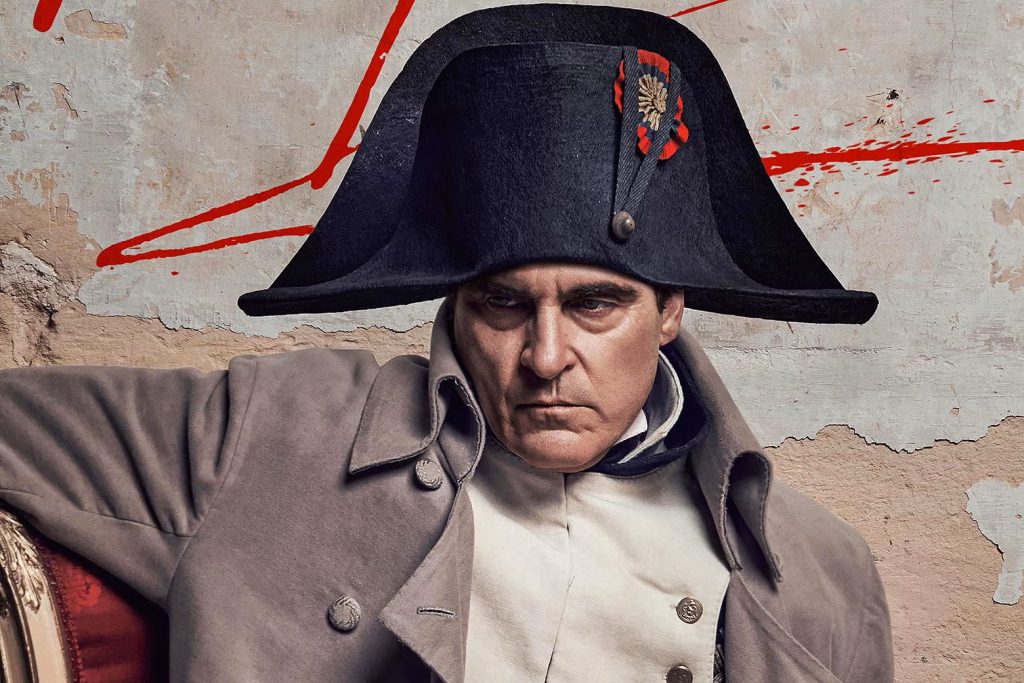

Well, we went to the Cineworld complex, on the edge of Ely, yesterday, and watched Ridley Scott’s new film, Napoleon.
Released in the UK on 22nd November, and running just short of two hours and forty minutes, it finds the director returning to the same era in which his first feature film, The Duellists, was set.
Apparently, thus far, it is set to ‘break even’, fairly soon. However, the screening we saw was very poorly attended. The room was practically empty. Most of the folk at the cinema complex – and it was pretty busy overall – were there to see Wonka. A reflection of the shallow vapid times we live in? I reckon so.
Without recapitulating the story – Napoleon’s life and the era that bears his name are a source of endless historical and fictional telling and re-telling, as this movie helps demonstrate – I’m going to get straight to the heart of the issue.
There are two chief problems with Scott’s film:
First, unlike the ‘Little Boney’ of Georgian propaganda (who was in fact simply of average height for his time) it really is way too short. You simply cannot tell a story of the scope and grandeur Napoleon’s life entails in the time this movie allocates.
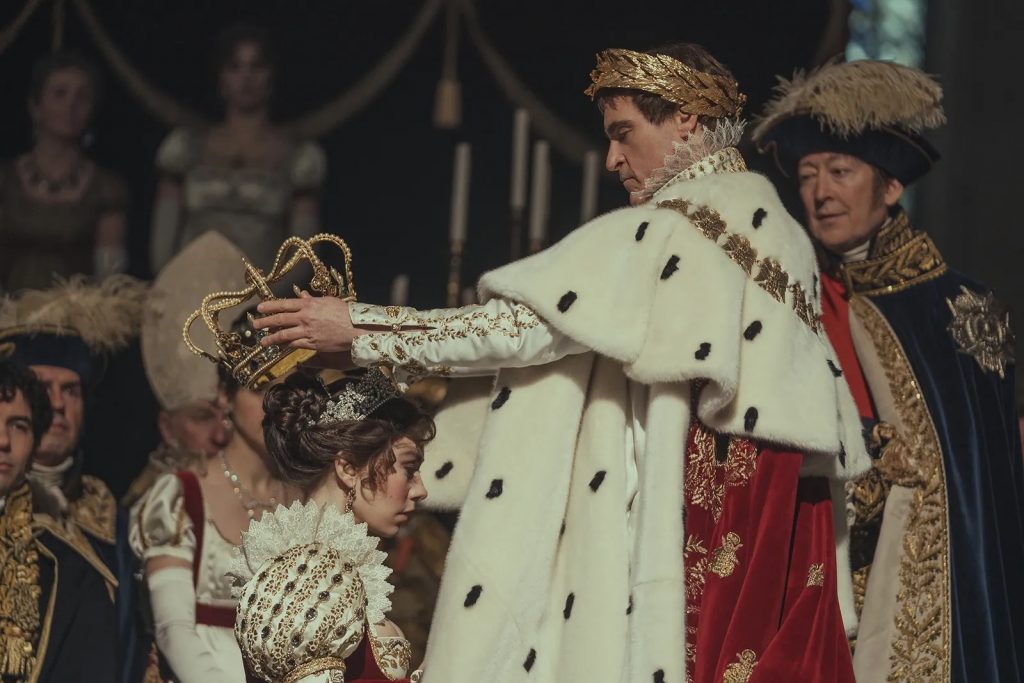
Even in longer series – from the numerous War & Peace adaptations, to Ian Holm’s Napoleon & Love – the amount of ‘exposition’ any such brevity requires is anathema to engaging drama.
Second, historical accuracy. Legend has it that Napoleon said history is only lies that have been agreed upon. Others say that ‘history teaches nothing’. Well, I beg to differ, somewhat. We can learn from history. And it can be nearer to or farther from genuine truth.
Such disservice to the far more interesting reality, and also, more fundamentally and worryingly, the whole idea of ‘the quest for truth’, is significant.
The catalogue of egregious messing with historical verité is massive. From the vandalism of Egyptian archaeology, to his relationship with Josephine, and even the ways in which he fought his battles, there’s just way too much disrespect for reality.
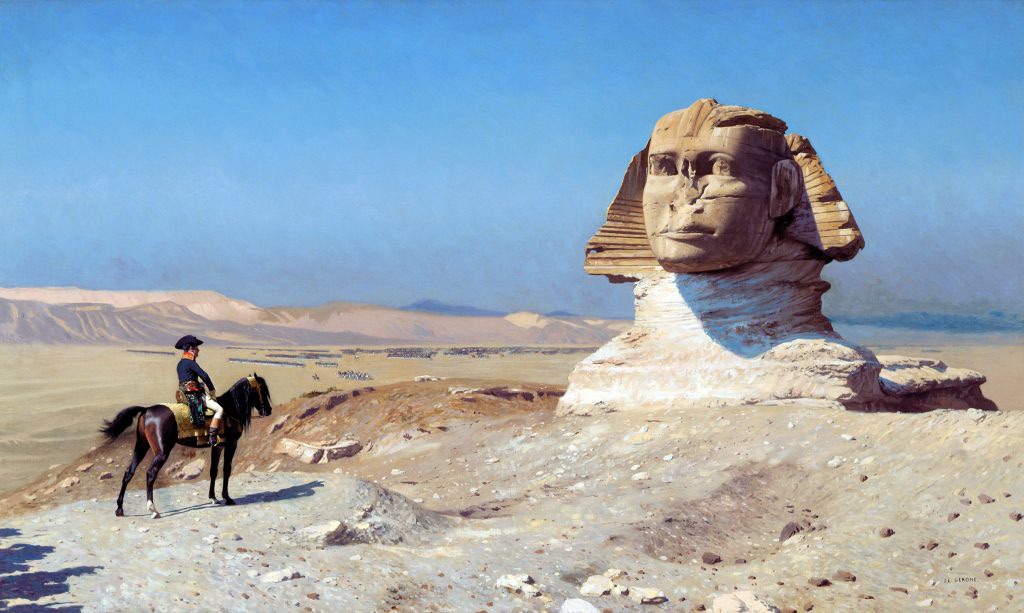
Let’s just unpack a few of these…
I’ll start with Bonaparte in Egypt. It’s long been known that the Sphinx’s nose was missing long before Napoleon arrived en Egypte. Never mind the fact that the battle in which this fictional damage takes place actually occurred a significant distance away from the monuments in question.
Far from being a wrecking machine – although war does inevitably bring destruction – Napoleon was renowned for taking with him to Egypt not just a military expedition, but also a virtual army of so-called Savants. The respect for and interest in Egyptian history Napoleon and his compatriots had greatly enriched the field of ‘Egyptology’, and includes the discovery of the Rosetta Stone, whose deciphering would eventually be accomplished by another Frenchman, Jean-François Champollion.
Much worse than this, to my mind, however, is how Scott et al treat Napoleon’s relationship with Josephine. For starters, in reality she was older than him. Hence her inability – despite having had children with her previous husband – to bear Napoleon an heir.
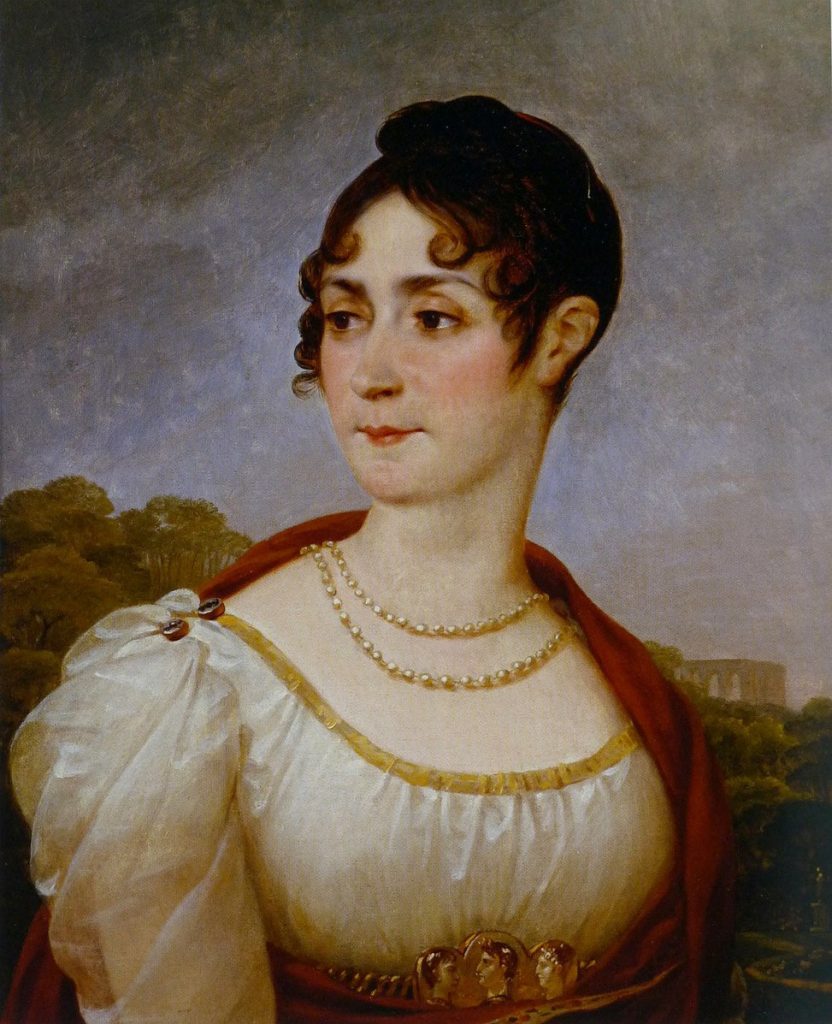
In my view the casting for this movie is not a strength. Staying with the Josephine thread, Vanessa Kirby is totally miscast. Billie Whitelaw, in her early 40s at the time, was a much better choice, for the TV series Napoleon And Love, back in the 1970s.
Even worse, we have Napoleon striking Josephine, during their divorce. Erm… nope. Didn’t happen! And yet worse still… can it get much worse? Napoleon returns from his exile on Elba, to fight what would become his last campaign, The Hundred Days, culminating in the epoch-ending Battle of Waterloo, on her account! What the absolute fuck!? She had actually been dead for over a year.
Sadly, and despite having respected historian of the era, Michael Broers, as ‘historical consultant’, Scott’s film plays so fast and loose with ‘truth’ as to very seriously impair the whole project. To wreck it, in point of fact.
I typed a whole other chunk about the military aspects of this film. But sadly WordPress and/or my home broadband (thanks, Virgin!) conspired to lose that for me. I’m not sure I can be arsed to rewrite it!
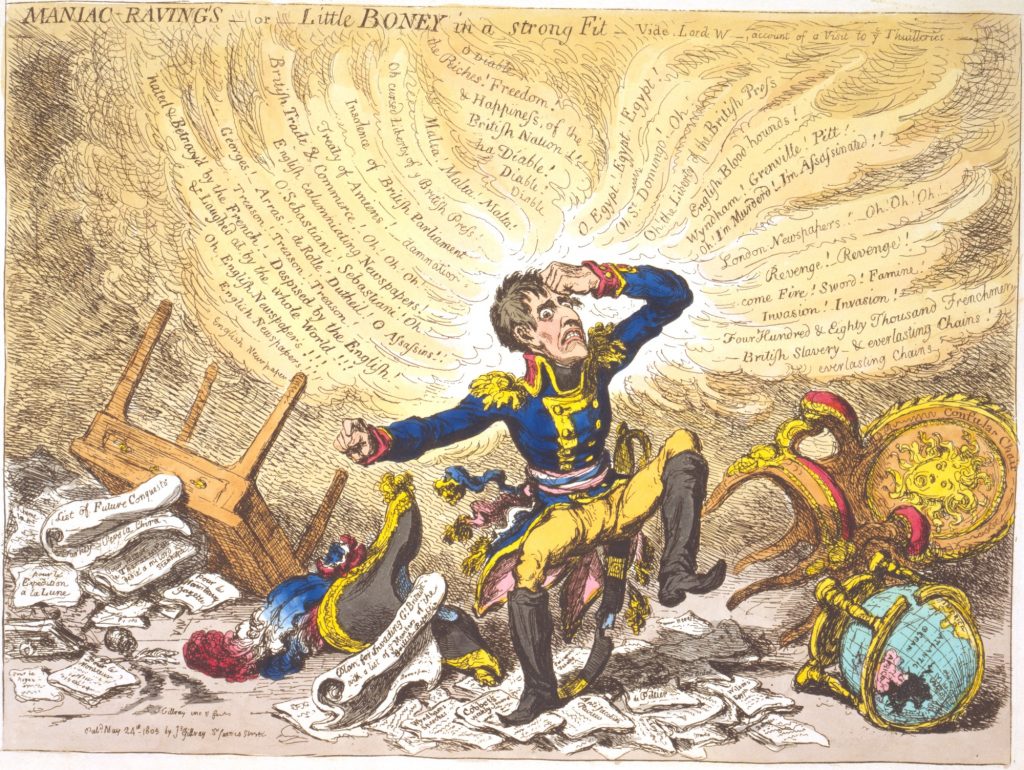
The British have, for the most part, had a very vexed relationship with Napoleon and historical accuracy. The dominant theme – he who pays the piper, and all that – as expressed in the Gillray print above, has been to caricature ‘Boney’ as a short-arse power-mad despot.
Does this film help remedy this historic litany of ahistorical Ancien Regime style propaganda? Alas, no.
Despite this rather damning account from me here, I may well watch this film again. In the perhaps forlorn hope that, on a second viewing, I might enjoy it more.
